The Gospel Message Is More Than You Have Heard in the Church—Much More!

The word gospel is one of the most common words in all of Christendom. But what does it mean, and where does the concept originate? If you believe that the idea of the gospel originated in the New Testament, you would be mistaken. As we shall discover and learn about below, the idea of the gospel (an Old English word for “good news”) came straight out of the book of Isaiah in the Old Testament hundreds of years earlier. But there is more. What follows will be the backstory behind the biblical concept of the gospel message—something you never learned in Sunday school!
The word gospel itself is easily enough defined, but what about the concept behind the word? The answer will take us into a whole other dimension and level of biblical understanding. The apostolic writers use the word gospel or its synonyms 132 times in the Testimony of Yeshua (NT).The word gospel literally means “good news or glad tidings.” There are two Greek words fors gospel: (euaggellion and euaggelizo). They are translated into English in the Authorized Version (KJV) via the following words: as a noun, gospel and as a verb, preach, bring good tidings, show glad tidings, declare, and declare glad tidings. The word itself is quickly defined, but what really is the good news? Let us begin to answer this by first seeing how the apostolic writers used this term. The vast majority of times the term gospel is used in the Testimony of Yeshua, the word stands alone in its noun form as simply the gospel without any adjective modifiers. However, on several occasions, the word gospel is used in a modifying phrase. This gives us a clue as to the meaning and scope of the word in the minds of the biblical authors.
- Gospel of the kingdom or of Elohim (used five times, see Matt 4:23; 9:35; 24:14; Mark 1:14)
- Gospel of Yeshua the Messiah or Yeshua (used 15 times, see Mark 1:1; Rom 1:16; 15:19; 1 Cor 9:12; Gal 1:7; Phil 1:27; 1 Thess 3:2)
- Gospel of the grace of Elohim (Acts 20:24)
- Gospel of Elohim (used five times, see Rom 1:1; 15:16; 2 Cor 11:7; 1 Thess 2:2, 8, 9)
- Gospel of peace (Rom 10:15; Eph 6:15)
But again, what is the good news? One cannot read the Testimony of Yeshua without seeing that Yeshua the Messiah is at the center of this good news message. Thankfully, this same good news (or gospel) of “Jesus” has been at the center of the Christian message for two thousand years. This will hardly come as a new revelation to the reader. The well known passage from John 3:16 sums up this blessed message perhaps better than any other:
For Elohim so loved the world, that he gave his only begotten Son, that whosoever believes in him should not perish, but have everlasting life.
The good news of the Messiah (Acts 5:42; 1 Cor 1:23; 2:2; 2 Cor 2:12) involves understanding the spiritual significance of his death, burial and resurrection and how that relates to the redemption, reconciliation and salvation of sinful man through Yeshua’s shed blood at the cross of Calvary (Heb. Golgatha). But is there more to the basic message of the good news that most Christian have missed? Yes. A whole lot more that adds richness and depth to this message, and help bring the whole Bible to life in a new and profound way. Let us now venture down this road of revelation and discovery.
Let us on this path of discovery by reading a passage from the writings of the Paul, a Jewish Torah scholar without peer in the first century, who discusses the deeper implications of the meaning of the term gospel in Romans 10:14–15,
How then shall they call on him in whom they have not believed? And how shall they believe in him of whom they have not heard? And how shall they hear without a preacher? And how shall they preach, except they be sent? As it is written, “How beautiful are the feet of them that preach the gospel of peace, and bring glad tidings of good things!” (emphasis added)
This is a quote from Isaiah 52:7. As we learn here, Isaiah who lived some five hundred years before the New Testament was written, coined the phrase “the good news” from which the word gospel originates. But what is this good news or gospel to which Paul is referring? Let us now gain a quick contextual overview of the passage from Isaiah which Paul is quoting by starting in Isaiah 52:2.
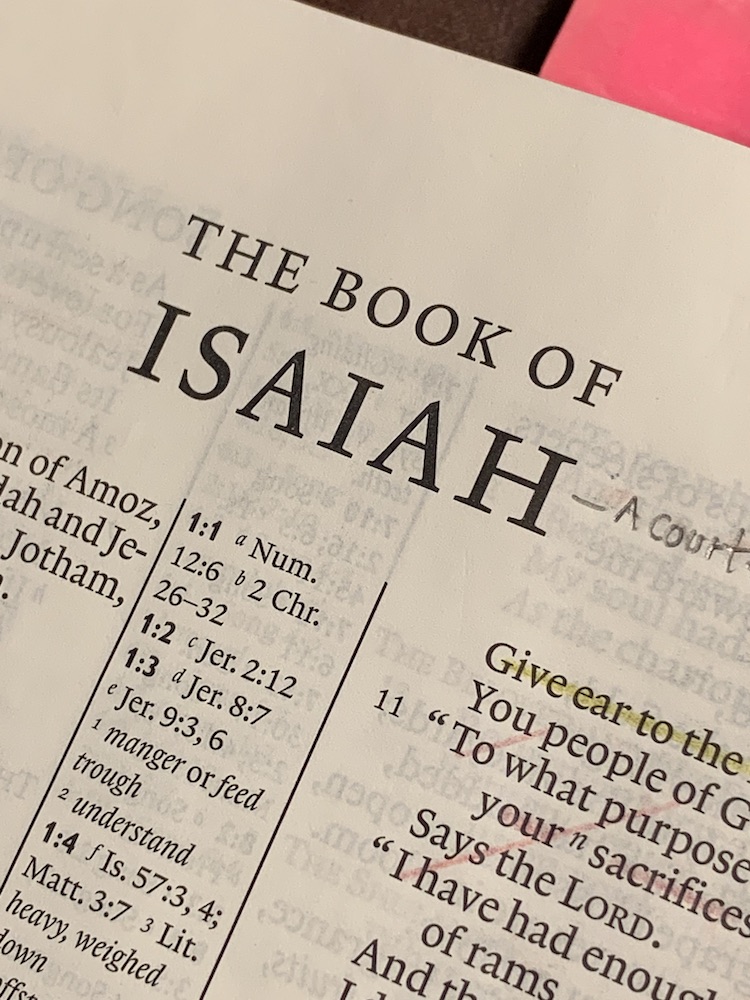
Isaiah 52:2, “O captive daughter of Zion.” This verse identifies the subject of the prophecy as the people of Israel.
Isaiah 52:3, “You have sold yourselves [to your harlot lovers] for nothing; and you shall be redeemed without money.” The people of Israel had turned away from Elohim and become apostate spiritually. This history has repeated itself many times in Israel’s long and sad history.
Isaiah 52:5, “…my people is taken away for nought?” Israel went into captivity because of her spiritual apostasy.
Isaiah 52:7, “How beautiful upon the mountains are the feet of him that brings good tidings, that publishes peace; that brings good tidings of good, that publishes salvation; that says unto Zion, Your Elohim reigns!” Isaiah prophesies that the time of Israel’s spiritual restoration, redemption and deliverance is coming.
Isaiah 52:8, “…when YHVH shall bring again Zion.” YHVH promises to redeem Israel from the physical and spiritual captivity where they were taken because they left the Torah ways of YHVH and sold themselves into adulterous relationships with their foreign, pagan lovers. He promised to bring them back into a righteous relationship with him
Isaiah 52:9, “…he has redeemed Jerusalem.” How will YHVH redeem Israel out of sinfulness and bring them back to himself spiritually? He has a plan to do this, which he has revealed to Isaiah, which the prophet will now share with his readers.
Isaiah 52:13ff, Enter Yeshua the Messiah (Jesus Christ), the Suffering Servant, who will redeem his sinful and apostate people and bring them back to Elohim.
Isaiah 53:4–6, Isaiah prophesied that the Redeemer of YHVH would bear upon himself the sin (death) penalty for adulterous Israel and Judah by dying, and then he would “prolonged his days” (verse 10) by being resurrected, so that he could remarry Israel (spiritually), as we shall learn more about later.
Isaiah 53:6, “All we like sheep have gone astray; we have turned every one to his own way; and YHVH has laid on him [i.e. Yeshua the Messiah] the iniquity [i.e. Israel’s sinning against YHVH through violation of the Torah covenant or marriage agreement that Israel made with YHVH at Mount Sinai] of us all.”
Isaiah 54:1, “…for more are the children of the desolate than the children of the married wife, says YHVH.” In captivity, Israel became spiritually desolate and was trampled under the foot of men like the dust of the ground all the while multiplying numerically.
Isaiah 54:3, “your seed shall inherit the Gentiles….” Where Israel became like the dust of the ground, YHVH promised to redeem her from captivity and declares that she will become like the stars of heaven in numbers and glory. Israel will then become as a net who will bring with her the riches of the sea (i.e. the Gentile people of the nations with whom she has mixed through intermarriage).
Isaiah 54:4, “for you shall forget the shame of your youth, and shall not remember the reproach of your widowhood any more.”
Isaiah 54:5, “For your Maker is your husband; YHVH of Hosts is his name; and your Redeemer the Set-Apart One of Israel; the Elohim of the whole earth shall he be called.” The nation of Israel, now in a redeemed state along with the Gentiles with whom she was intermarried shall enter into a righteous and loving relationship with Elohim.
Isaiah 54:6, “For YHVH has called you as a woman forsaken and grieved in spirit, and a wife of youth, when you were refused, says your Elohim.”
Isaiah 54:7, “For a small moment have I forsaken you; but with great mercies will I gather you [out of captivity back to Zion].”
Isaiah 54:8, “‘In a little wrath I hid my face from you for a moment; but with everlasting kindness will I have mercy on you,’ says the YHVH your Redeemer.”
Isaiah 54:10, “‘…but my kindness shall not depart from you, neither shall the covenant of my peace be removed,’ says YHVH that has mercy on you.” This is a reference to the renewed marriage covenant YHVH would make with Israel in the future—literally, a renewal of their wedding vows (Jer 31:31–33). This is what is commonly referred to as the New or Renewed Covenant, about which Jeremiah prophesied and to which Yeshua makes reference in Matthew 26:28 as does the writer of the Epistles to the Hebrews in chapter eight verse eight of that book.
Isaiah 54:11–12, “And I will make your windows of agates, and your gates of carbuncles …” This is a reference to the New Jerusalem of which all Israel (that is, all twelve tribes, not just the Jews from the tribe of Judah) will be a part, and which contains only 12 gates named for the twelve tribes of Israel. There will be no Gentile gate (Rev 21:12).
Isaiah 54:17, No weapon formed against Israel shall prevent their redemption, restoration and attainment of righteousness through YHVH.
Isaiah 55:1, “Ho, every one that thirsts, come you to the waters,” Israel, returning out of the wilderness of her captivity, will be thirsty. Indeed she will drink water from the wells of her salvation in Yeshua, her Redeemer and Bridegroom (cp. Isa 12:3). Isaiah 11:10–12:6 is a corollary passage to this verse. There we find a prophecy about a spiritual root or offspring that would come from Jesse [i.e. Yeshua] that will stand for a banner of the people and the Gentiles will seek after it. Because of Yeshua, a remnant of YHVH’s people that have been scattered in Assyria, Egypt and beyond, the outcasts of Israel and the dispersed of Judah will return to the land of Israel from the four corners of the earth and will reunite with their brother Ephraim and together they will become a united kingdom under King David once again (Ezek 37:15–28).
Isaiah 55:3, “Neither let the son of the stranger, that has joined himself to YHVH, speak, saying, ‘YHVH has utterly separated me from his people.’ Neither let the eunuch say, ‘Behold, I am a dry tree.’” By all appearances it would seem that the dispersed of Israel had been cut off with no inheritance or progeny, and had become like a dry tree or a eunuch that was incapable of producing offspring. In reality, the opposite was true. While in captivity, Israel had become a vast multitude of people that would be added to the tree of Judah (Ezek 37:19) or grafted back into the olive tree of Israel (Rom 11:13–24).
Isaiah 56:1ff, Observing the seventh day Sabbath is at the center of Israel’s redemption. The Sabbath is a covenantal sign between YHVH and his people and one of the first Torah-commands to which YHVH’s apostate people return on their path back to him.
Isaiah 56:6, Here are the sons of the stranger that join themselves to YHVH to serve him and to love his name, who keep his Sabbath from polluting it, and take hold of his Torah-covenant.
Isaiah 56:8, YHVH will gather the outcasts of Israel.
Isaiah 56:10–12, Israel’s (i.e. the Christian and Jewish) watchmen (or prophets) and shepherds (or Christian pastors and Jewish rabbis) are blind, ignorant, dumb, barkless and greedy dogs.
Isaiah 58:1, “Cry aloud and spare not, lift up your voice like a shofar [in our days, the sound of the shofar is stirring the hearts of apostate Israelites (Christians) and bringing many outcasts of Israelites back to their Hebraic heritage] and show my people their transgression [i.e. violation of the Torah-covenant or marriage agreement that the children of Israel made with YHVH at Mount Sinai] and the house of Jacob their sins.”
Isaiah 58:13, Again, the Sabbath is a focal point of that covenantal agreement. This is because it was the sign of the Mosaic or Sinaitic Covenant that the nation of Israel made with YHVH (Exod 31:13).
Isaiah 61:1, “The Spirit of YHVH Elohim is upon me; because YHVH has anointed me to preach good tidings unto the meek; he has sent me to bind up the brokenhearted, to proclaim liberty to the captives, and the opening of the prison to them that are bound.” Yeshua declared that this prophecy pointed to him and that he was fulfilling it (Luke 4:18–21).
Isaiah 61:2, “To proclaim the acceptable year of YHVH, [this prophecy was fulfilled at the first coming of Yeshua the Messiah] and the day of vengeance of our Elohim; to comfort all that mourn [this part of the prophecy will be fulfilled at the second coming of Yeshua the Redeemer of the outcasts and dispersed of Israel].”
Isaiah 61: 3, “To appoint unto them that mourn in Zion, to give unto them beauty for ashes, the oil of joy for mourning, the garment of praise for the spirit of heaviness; that they might be called trees of righteousness, the planting of YHVH, that he might be glorified.”
Isaiah 61:5, “Strangers…sons of the alien…” are a reference to the dispersed ten tribes of the Northern Kingdom of Israel.
Isaiah 61:9, “Their seed shall be known among the Gentiles, and their offspring among the people….” These scattered Israelites have intermarried with the Gentile nations of the world.
Isaiah 61:10, “I will greatly rejoice in YHVH, my soul shall be joyful in my Elohim; for he has clothed me with the garments of salvation, he has covered me with the robe of righteousness, as a bridegroom decks himself with ornaments, and as a bride adorns herself with her jewels.”
Isaiah 61:11, “For as the earth brings forth her bud, and as the garden causes the things that are sown in it to spring forth; so YHVH Elohim will cause righteousness and praise to spring forth before all the nations” (emphasis added on all). In the end times, YHVH Elohim will bring forth a vast spiritual revival to his lost, scattered and apostate people as they repent of their sins and come back to him.
What Then is the Good News or Gospel?
What we learn by studying Isaiah chapters 52 through 61 is that the good news message is the unquenchable love that YHVH Elohim has for his people Israel, who have been dispersed and exiled among the Gentiles nations because of their walking away from his commandments and their covenantal agreement to obey him, and who have been cut off from YHVH Elohim, their Maker and their Husband, and who have become aliens from the covenants of promise and from the commonwealth of Israel, without Elohim and without hope (see Eph 2:12).
But because of YHVH’s unfailing love, these same wayward children have been brought back to YHVH and redeemed from their sin and spiritual waywardness by the blood of Messiah Yeshua, the Suffering Servant, who paid the price for the sin of their spiritual adultery, and for breaking their marriage agreements with him. They are, therefore, no longer strangers and aliens, but like the prodigal son in the parable of Yeshua, will return and be welcomed back to their Father’s household (Luke 15:11–32; Eph 2:11–19). They were also like wild olive branches that had been broken off of the olive tree of Israel because of disobedience to YHVH’s laws and because of unbelief (Rom 11:13–24), but through repentance and faith in and faithfulness to YHVH they are being grafted back into that same olive tree through Yeshua the Messiah.
Being grafted back in to the olive tree of Israel, or being repatriated into the commonwealth or nation of Israel is rehearsed each time a believer in Yeshua drinks from the cup of communion. Spiritually, this symbolizes the Cup of Redemption, the third cup of the Jewish Passover Seder, which corresponds to the Cup of Acceptance that a Jewish maiden drinks at her betrothal ceremony to show her Israelite suitor that she accepts his marriage proposal signifying the beginning of their betrothal. This also corresponds to Yeshua ritualistic action, on the night of his Passover with his disciples, when he drank of the fruit of the vine, and then passed that cup around and had them drink therefrom, which was their accepting, as representatives of the spiritual bride of Israel, his marriage proposal to Israel. A saint rehearses this glorious and little understood truth each time they drink from the communion cup. Similarly, this corresponds to a new believer in Yeshua confessing with his or her mouth Yeshua as their Master and believing in their heart that Elohim has raised him from the dead. At this point, one believes unto righteousness and accepts the redemption of Messiah Yeshua and is saved (Rom 10:9–10) and is grafted into the olive tree (or tree of life), which is a picture of Yeshua who is the Tree of Life. Yeshua spoke of this tree when he said, “I am the vine and you are the branches…” (John 15:1–6; Rom 11:13–24). How many Christians understand the fundamental truths just delineated in this paragraph? Very few, yet it is all there in the Bible in black and white, hidden in plain sight for those who have eyes to see.
This then is the Hebrew roots message behind the oft-used term the gospel.
Background of Israel’s Marriage to YHVH
Many believers have very little understanding of how physical marriage portrays YHVH’s spiritual marriage to his people—the nation of Israel. Paul discusses this in his Epistle to the Ephesians where he likens a healthy, Yeshua-centered marriage between a husband and wife to the relationship between himself and his spiritual bride, the ecclesia or “called out ones,” and spiritual body of Yeshua, usually referred to as “the church” (Eph 5:21–33). Paul also juxtaposes physical marriage and the spiritual union or marriage between Yeshua and the ecclesia and calls it “a mystery” (verse 32). The word “mystery” is the Greek word musterion meaning “a hidden or secret thing, a religious secret revealed only to the spiritually enlightened or initiated, the secret counsels of Elohim which are hidden from the ungodly or wicked.” What we are about to study below will begin to shed some light on this beautiful spiritual mystery to which Paul makes reference. Here is a list of Scripture passages that paint the picture of YHVH’s marital relationship with YHVH.
The Whole House of Israel Was Married to Elohim
YHVH Elohim likens his spiritual relationship with Israel to a marriage.
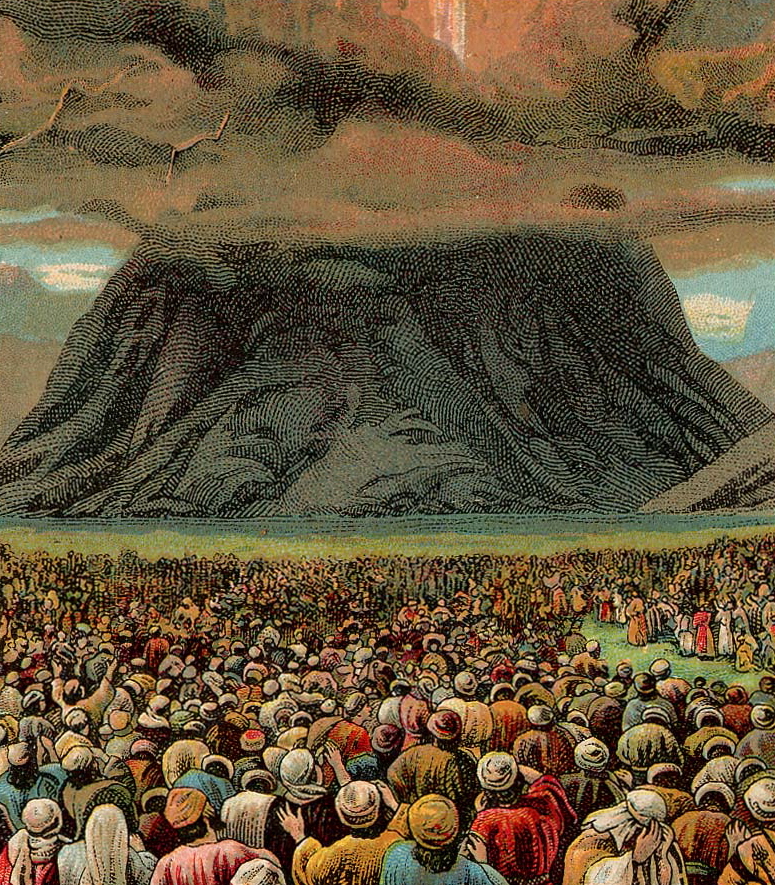
“And when I passed by you, and saw you polluted in your own blood, I said unto you when you were in your blood, ‘Live’; yes, I said unto you when you were in your blood, ‘Live.’ I have caused you to multiply as the bud of the field, and you have increased and waxen great, and you art come to excellent ornaments: your breasts are fashioned, and your hair is grown, whereas you was naked and bare. Now when I passed by you, and looked upon you, behold, your time was the time of love; and I spread my skirt [talit] over you, and covered your nakedness: yes, I swore unto you, and entered into a covenant [ketubah] with you,’ says the YHVH Elohim, ‘and you became mine.’” (Ezek 16:6–8)
YHVH Divorced the House of Israel
When Israel forsook YHVH for foreign lovers, he was forced to put her a way or divorce her.

Thus says YHVH, “Where is the bill of your mother’s divorcement [called a get], whom I have put away? Or which of my creditors is it to whom I have sold you? Behold, for your iniquities have you sold yourselves, and for your transgressions is your mother put away.’” (Isa 50:1)
In this passage, YHVH is not asking whether or not there is a get, but rather he is asking to be shown the get that he had previously written. How do we know this is the correct interpretation? If he had not put her away (divorced her) why would he have prophesied the need for a renewed covenant (or a renewal his marriage vows) with her in Jeremiah 31:31-33?
And I saw, when for all the causes whereby backsliding Israel committed adultery I had put her away, and given her a bill of divorce; yet her treacherous sister Judah feared not, but went and played the harlot also. (Jer 3:8)
Then said Elohim, “Call his name Loammi: for you are not my people, and I will not be your Elohim.” (Hos 1:9)
Plead with your mother, plead: for she is not my wife, neither am I her husband: let her therefore put away her whoredoms out of her sight, and her adulteries from between her breasts. (Hos 2:2)
Israel Marries Her Foreign Lovers

While there is no place in Scripture that specifically states that the house of Israel married any of her foreign lovers (the house of Judah, on the other hand, did marry “the daughter of a strange god,” [Malachi 2:11]), the Torah specifically states that when two unmarried people have consensual intimate relations they are considered married in YHVH’s eyes, for the sex act consummates the marriage (Deut 22:28-29 and Exod 22:16). If, on the other hand, a married woman lays with a man, this is adultery and is punishable by death (Deut 22:22-24). As we have seen, YHVH gave the house of Israel a bill of divorce, thus freeing her to remarry.
Jewish Rabbinical authorities recognize this fact. Baal HaTurim, the notable medieval Jewish Torah scholar, states in his commentary on Exodus 19:4, “[A] woman may be acquired [as a wife] through any one of three ways (i) through money; (ii) through a legal document or (iii) through marital relations.” He then goes on to show how YHVH acquired Israel through money (i.e. the spoils of Egypt and the sea; through a document (i.e. the Torah as a written marriage document or ketubah); and through marital relations (as it is stated, “I will spread my skirt or wing over you…and I will enter a covenant with you [Ezek 16:8]). This is further proof that consensual sexual relations between a man and a woman not only consummate but also legally establish the marriage. The house of Ephraim or Israel (who eventually became, in a general sense, the Gentile Christians) and the house of Judah or the Jews were therefore legally married to their foreign lovers spiritually speaking.
The Divorced Wife Grieves for Her Divorced Husband
Israel pursued her foreign lovers with a passion to the consternation of YHVH Elohim, her first and true husband.
And she shall follow after her lovers, but she shall not overtake them; and she shall seek them, but shall not find them: then shall she say, I will go and return to my first husband; for then was it better with me than now. For she did not know that I gave her corn, and wine, and oil, and multiplied her silver and gold, which they prepared for Baal. (Hos 2:7-8)
A Marriage Agreement (Betrothal/Erusin) Is Anticipated

Several Old Testament prophets predicted the day when the nation of Israel would regret her turning away from YHVH Elohim, repent of her sin of apostasy and return to him, her first and true husband. They would eventually remarry under a new or renewed covenant.
“And it shall be at that day,’” says YHVH, “that you shall call me Ishi; and shall call me no more Baali. For I will take away the names of Baalim out of her mouth, and they shall no more be remembered by their name. And in that day will I make a covenant for them with the beasts of the field, and with the fowls of heaven, and with the creeping things of the ground: and I will break the bow and the sword and the battle out of the earth, and will make them to lie down safely. And I will betroth you unto me for ever; yes, I will betroth you unto me in righteousness, and in judgment, and in lovingkindness, and in mercies.” (Hos 2:16-19, emphasis added)
You shall also be a crown of glory in the hand of YHVH, and a royal diadem in the hand of your Elohim. You shall no more be termed Forsaken; neither shall your land any more be termed Desolate: but you shall be called Hephzibah, and your land Beulah: for YHVH delights in you, and your land shall be married. For as a young man marries a virgin, so shall your sons marry you: and as the bridegroom rejoices over the bride, so shall your Elohim rejoice over you. (Isa 62:3-5)
“Behold, the days come,” says YHVH, “that I will make a new covenant with the House of Israel, and with the House of Judah: Not according to the covenant that I made with their fathers in the day that I took them by the hand to bring them out of the land of Egypt; which my covenant they brake, although I was an husband unto them,” says YHVH: “But this shall be the covenant that I will make with the House of Israel; After those days,” says YHVH, “I will put my law in their inward parts, and write it in their hearts; and will be their Elohim, and they shall be my people. And they shall teach no more every man his neighbor, and every man his brother, saying, ‘Know YHVH’: for they shall all know me, from the least of them unto the greatest of them, says YHVH: for I will forgive their iniquity, and I will remember their sin no more.” (Jer. 31:31-34)
The Problem of Divorce and Remarriage

There is a problem that first has to be resolved before YHVH can remarry the nation of Israel, and this is where the death and resurrection of Yeshua comes in. Very few Christians understand this important truth behind the basic gospel message. This message has been hidden to millions of Christians for thousands of years until recently. Let us now unveil this mystery.
The Torah-law forbid a man from remarrying his divorced who has remarried (Deut 24:4). YHVH divorced the house of Israel. Legally, YHVH cannot remarry her according to his own Written Word or Torah-law. What, therefore, is the solution to this dilemma? Either the wife or the husband has to die, and then resurrect in essence becoming a new person, for when a person dies the Torah-law no longer prohibiting them from remarrying their former spouse no longer has a claim on them. This seems like an impossible situation. But not with YHVH! This is when YHVH-Yeshua the Messiah enters the scene as the Suffering Servant (Isa 52:13ff), who would die for his people and redeem them from captivity, and then resurrect from the grave, so that he could remarry them. This is the message of Romans 7:1–14. Let’s now read it, so you can see the unveiling of this mystery, this hidden truth behind the traditional and commonly understood gospel message as proclaimed in mainstream Christianity.
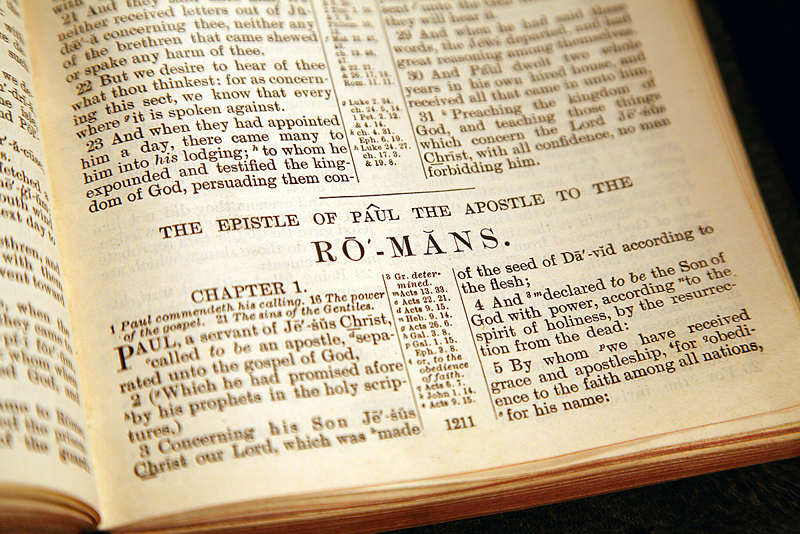
1 Know you not, brethren, (for I speak to them that know the law has dominion over a man as long as he lives?
2 For the woman which has an husband is bound by the law to her husband so long as he lives; but if the husband be dead, she is loosed from the [or this] law of her husband.
3 So then if, while her husband lives, she be married to another man, she shall be called an adulteress, but if her husband be dead, she is free from that [NKJV, which Torah-law?] law; so that she is no adulteress, though she be married to another man.
4 Wherefore, my brethren, you also are become dead to the law by the body of Messiah; that you should be married to another, even to him who is raised from the dead, that we should bring forth fruit unto Elohim.
5 For when we were in the flesh, the motions of sins, which were by the law, did work in our members to bring forth fruit unto death.
6 But now we are delivered from the law, that being dead wherein we were held; that we should serve in newness of spirit, and not in the oldness of the letter.
7 What shall we say then? Is the law sin? Elohim forbid. Nay, I had not known sin, but by the law, for I had not known lust, except the law had said, “You shall not covet.”
8 But sin, taking occasion by the commandment, wrought in me all manner of concupiscence. For without/apart the law sin was dead.
9 For I was alive without/apart the law once: but when the commandment came, sin revived, and I died.
10 And the [or this] commandment, which was ordained to life, I found to be unto death.
11 For sin, taking occasion by the commandment, deceived me, and by it slew me.
12 Whereforethe law is holy, and the commandment holy, and just, and good.
13 Was then that which is good made death unto me? Elohim forbid. But sin, that it might appear sin, working death in me by that which is good; that sin by the commandment might become exceeding sinful. (emphasis added on all)
Putting the Pieces of the Puzzle Together
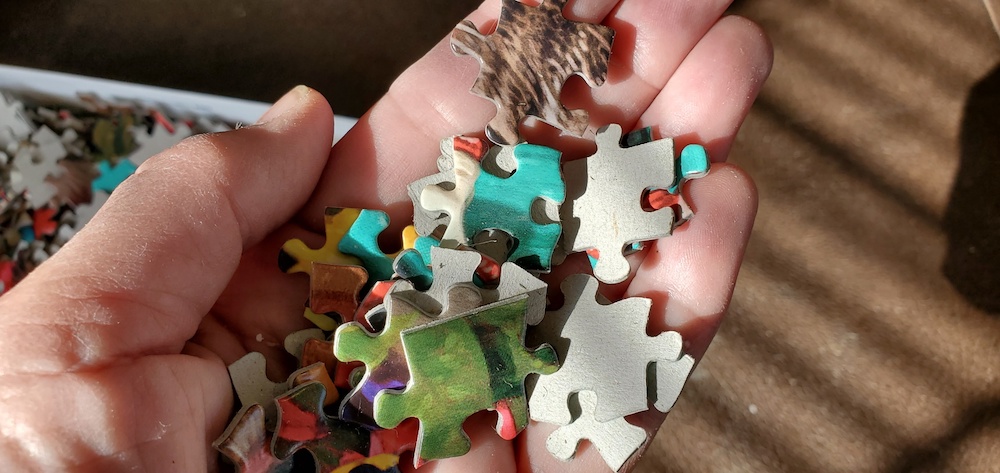
Because of Israel’s unfaithlessness YHVH divorced her (Isa 50:1; Jer 3:8) and rejected her (Hos 1:9; 2:2). In pursuing her spiritual, heathen lovers, she was not satisfied, but longed for YHVH, her former (spiritual) husband (Hos 2:7-8). But because YHVH had already divorced her due to her violation of her marital or covenantal agreement (in Hebrew a ketubah), which she made with YHVH, her Husband, at Mount Sinai when she said, “I do” to him three times (Exod 19:8; 24:3, 7), he could not remarry her without violating his own Torah (Deut 24:4), since she had become another man’s wife. Nonetheless, YHVH’s intentions were clear: he would remarry her (Hos 2:16-19; Isa 62:3-5; Jer 31:31-34). But how could he do so, since (a) she was worthy of death for her adultery under Torah, and (b) he could not remarry his divorced and remarried wife?
Enter the Paul, a Jewish legal expert, who from the pages of Scripture unravel this perplexing legal conundrum and give us a Scripturally and legally sound answer. Romans 7:1–6 is a discussion of this very issue.
If a woman’s husband dies she is free to remarry. She is no longer legally bound to her husband, since the Torah-laws pertaining to marriage have no jurisdiction over a dead man.
Some Christian biblical expositors claim this passage teaches that New Covenant believers through Yeshua are now dead to the Torah of Moses. For them, this means that one is now only obligated to keep the so-calle moral the law (no idolatry, no murder, no adultery, etc.), but that one is freed from the more ritualistic, ceremonial, and lifestyle aspects of the Torah (Shabbat, feast days, kosher laws, etc.) except for the tithing laws, curiously so. The problem with this explanation is that Scripture nowhere differentiates between the so-called moral and ceremonial laws of Torah. This idea is an unbiblical and man made.
Therefore, in Romans chapter seven (and elsewhere) Paul is not teaching that certain aspects of YHVH Torah have been done away? Those who teach that he is are overlooking a major detail in the Greek grammar of Romans 7:1–10 Paul makes reference to a specific Torah law. For example, in Romans 7:2, he references “the/this law of her husband.” In verse three, he refers to “that law.” Is he referring here to the entire body of laws contained in the Torah, or to a specific law, that is, “the law of her husband”? Is Paul referring to the sum total the Torah, or to one specific law within the Torah that pertains to marriage?
Based on the Bible translators’ use of the demonstrative pronoun that in verse three (as opposed to the definite article the), the internal evidence of this passage would point to the phrase this/that law being preferred over the phrase “the law.” This being the case, to which specific law out of the 613 found in the Torah would Paul be referring? In verse two we read, “… if the husband dies she is loosed from [this/that] law of her husband.” It is the law that states that if a woman has sex with another man beside her husband (and she is not legally divorced) she is an adulteress (Exod 20:14).
The Torah also forbids a woman from remarrying her first husband who had divorced her due to her adulterous relationship with and subsequent marriage to another man (Deut 24:4). But how could she remarry her first husband (if her second husband was still alive) without violating the Torah prohibiting this? This is impossible in the physical world, but with YHVH all things are possible, since he exists outside of the natural world. What if her first husband were to die in her place (and pay the legal death penalty under the Torah for her adultery), and then resurrect as a new or different man? Is this possible? Evidently, Paul thought so. In Romans 10, he expresses his heart’s desire for the salvation of Israel and states that this occurs through one’s calling upon the name of Messiah Yeshua who did just that: he died on the cross and paid the sin penalty and resurrected as a new man.
The preaching of this message, which Paul calls the gospel or good news, is the message of YHVH-Yeshua remarrying his divorced bride. We see this in Romans 10:14–15 where Paul quotes Isaiah 52:7, which in its greater context (Isa 52:2–62:12) is talking about the Final Redemption (a Rabbinical concept based on YHVH’s promises in Deut 30). This involves the return and restoration of the exiled house of Israel back to YHVH through the death, burial and resurrection of Messiah Yeshua (see Isa 53). This glorious event then paves the way for the establishment of the Messianic Age (or Millennium).
Messiah Yeshua is presently betrothed to his spiritual bride (the body of Yeshua the Messiah loving, Torah-keeping saints (see Rev 12:17; 14:12; 19:7–9), who Paul calls “the Israel of Elohim (Gal 6:16). These are the redeemed Israelites whom he has redeemed and sanctified by his blood from her state of spiritual harlotry. This bride awaits his return from his Father’s house where he will claim her as his own and take her as his full-fledged wife. She awaits the wedding feast that will last for 1000 years.
All Israelites whether they come to faith in Messiah Yeshua through the Judah branch or through the Ephraim-Gentile branch combine to become the one new man in Messiah Yeshua (Eph 2:11–19). All those who place their faith in the Messiah are the descendants, by faith, of Abraham (Rom 4:16; 9: 8, 11; Gal 3:14), and will rule with Yeshua, as his spiritual wife, as kings and priests in his Millennial kingdom (Rev 1:6; 5:10; 20:6).
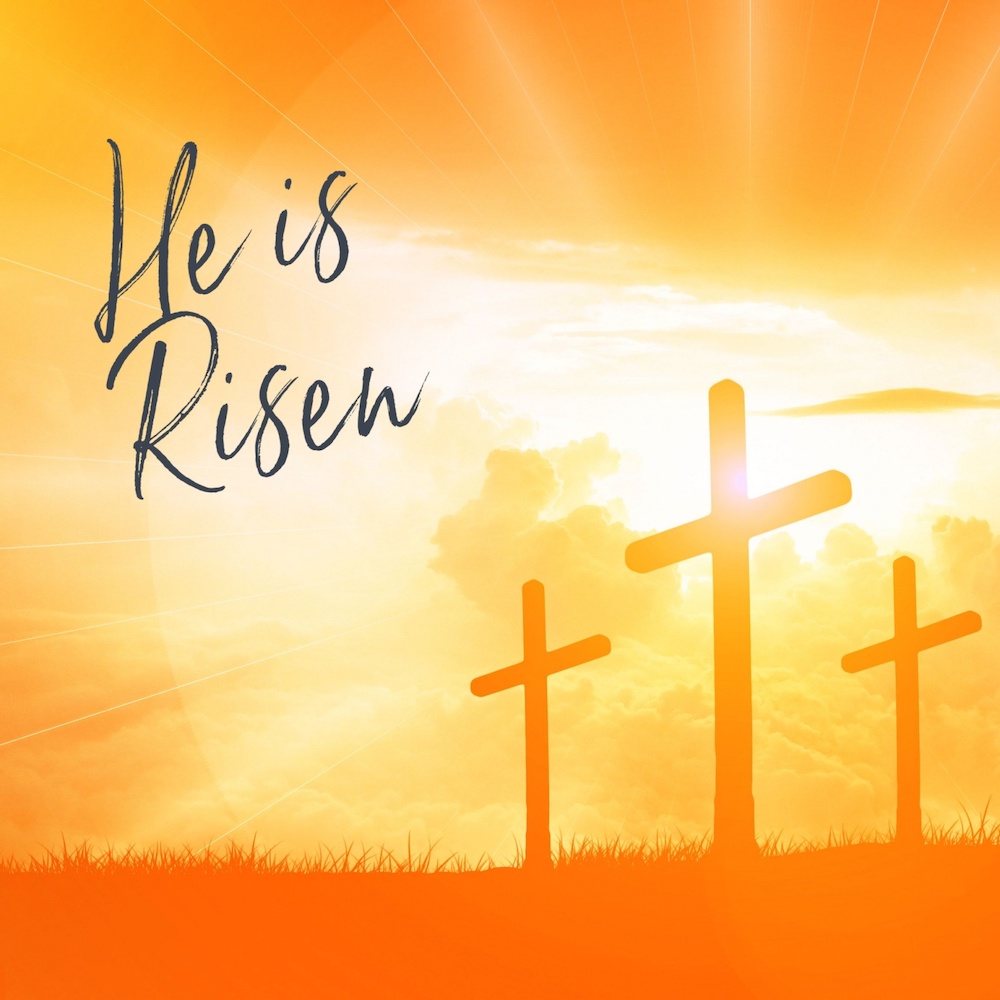
This is the full and true good news (gospel) of the kingdom of Elohim that is not being taught in mainstream Christianity! Yes, the basic message of the cross that the church has been teaching for nearly two millennia is still true, but when the gospel is connected to its pro-Torah, Hebraic roots, it suddenly takes on a whole new meaning and dimension as the whole Bible comes to life, not just the last fourth of the book. When Christians realize that they are grafted into the olive tree of Israel through Yeshua, the tree of life, and are now redeemed Israelites or “the Israel of Elohim” (Gal 6:16), who will enter into the New Jerusalem through the gates named after the twelve tribes of Israel (since there is not “Gentile” gate), this should cause them to rethink what the church has taught them about the Torah and the Gentiles.


Mazel Tov!
Natan,
Well Done (good and faithful servant) and Well Written
(Romans 2:29 – with the understanding that comes from a heart of flesh, not of stone) !
Your commentary on this is insightful and enlightening. I think the more that Christians understand these connections the less they will struggle with reconciling the Old and New Testaments. The Lord our God is one.
A few days ago, I witnessed on the T.V. a rather large gay-pride celebration in the streets of Jerusalem. This is what happens when mortal corruption distances itself from Torah.
Shalom, John
This was a very good read. Thank you for sharing your midras publicly,